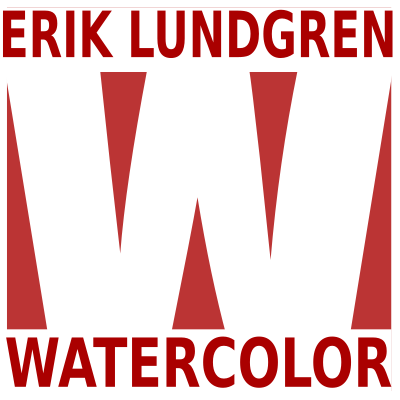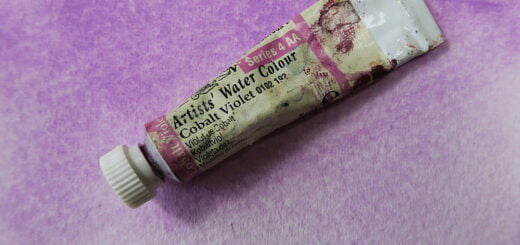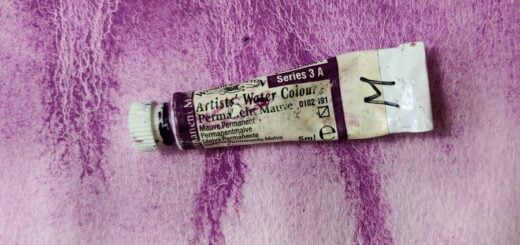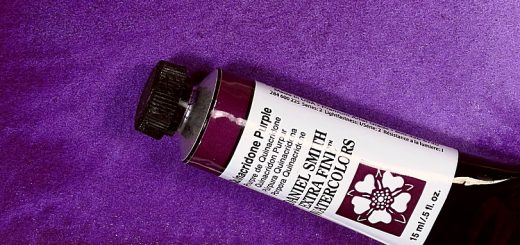Carbazole violet (Dioxazine violet)
August 22, 2020

It was created in the early 1950s but did not come as a watercolor until much later. The full name of the pigment is carbazole dioxazine Violet. It’s too long for a watercolor paint, so some manufacturers use the first part carbazole and others use Dioxazine, some invent an imaginary name for paints.
Carbazole violet seems to be a less common color in the watercolor painters’ palette. It’s a shame, it’s very useful. It is one of the few blue-violet pigments, complementary to primary yellow. There is also ultramarine violet which is blue-violet, but that color has completely different properties.
The pigment is transparent to semi-transparent depending on the manufacturer. It is staining and does not granulate at all, it is very lightfast. According to Bruce MacEvoy from Handprint, the one from Daniel Smith is more durable than others. Probably because some manufacturers dilute the pigment and thus degrade durability. It’s a good reason to buy quality,
If you want a purple color that is durable and easy to paint with, this is the color for you. Try is to mix it with Terre Verte, it will be a nice gray. The color is so intense that it looks black when painted thick, like phthalo blue, the pigment loses both value and hue when it dries.
What the different manufacturers call the color:
Daniel Smith carbazole violet
Winsor & Newton winsor violet
Utrecht dioxazine purple
MaimeriBlu permanent violet bluish
Rowney Artists permanent mauve
Schmincke Schmincke Violet
Lukas Dioxazine Violet
Holbein Permanent Violet
M. Graham Dioxazine Purple
Old Holland Dioxazine Mauve
Blockx Dioxazine Mauve
Talens Rembrandt Blue Violet
Sennelier Dioxazine Purple
Information
Pigment: PV 23 (available in both red and blue tones – RS BS)
Lightfastness: excellent
Transparency: Semi-transparent
Staining: Medium
Granulates: Not at all















DS in my palette it goes. This blog has a lot of good advice! Tack